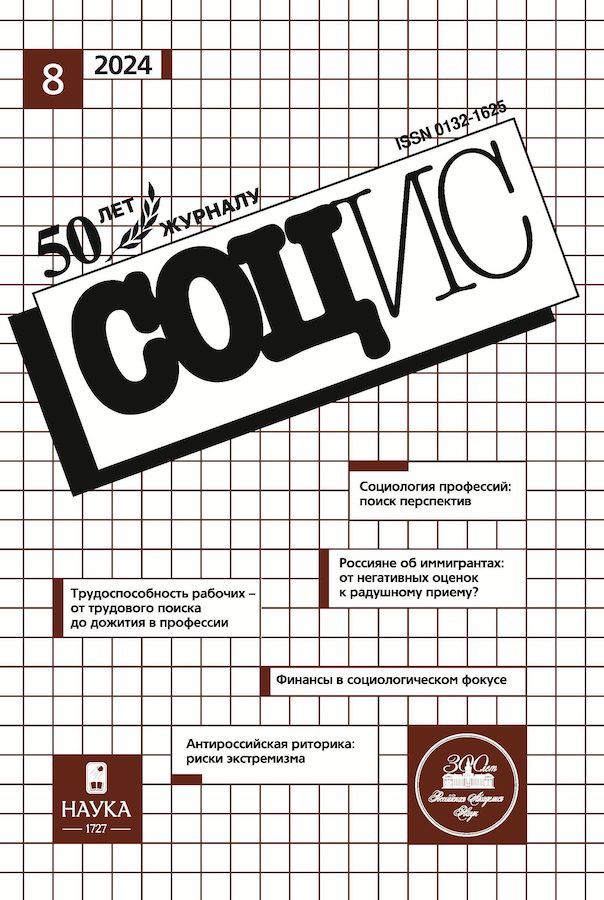Social well-being and adaptation practices of the Tuva population: gender differentiation
- Authors: Balakina G.F.1, Natsak O.D.2
-
Affiliations:
- Tuvan Institute of Integrated Development of Natural Resources SB RAS
- Tuvan Institute of Humanitarian and Applied Socio-Economic Research under the Government of the Republic of Tuva
- Issue: No 8 (2024)
- Pages: 155-160
- Section: FACTS. COMMENTS. NOTES
- URL: https://jdigitaldiagnostics.com/0132-1625/article/view/661832
- DOI: https://doi.org/10.31857/S0132162524080139
- ID: 661832
Cite item
Abstract
The authors have explored the features of the assessing the socio-economic situation in the Republic of Tuva by representatives of the gender groups on the basis of a sociological survey conducted under the guidance of the authors of the article in June-July 2023. They have analyzed social success of the chosen life strategies in terms of social well-being, life expectancy, and work preferences. The authors have found an increased propensity to risk in the male gender group compared to the female, as well as deviant behavior, passivity, and a reduced desire to find one’s own niche in market conditions. The gender contrast in the level of general and individual economic optimism/pessimism is due to a higher education level of women in Tuva and, as a result, corresponding socio-professional status and income. A low social activity of men arises out the high unemployment rate in Tuva, low rate of creative high-tech, well-paid jobs. The lag of men in these areas is a cause of insecurity, anxiety and fears for the economic situation of the families. Tuvan men have a slightly lower level of optimism than women, what does not coincide with the trends in modern development. We conclude that men choose less socially successful adaptation practices, which, along with genetic trends in female longevity, leads to a lower life expectancy and a reduced level of social well-being.
Full Text
About the authors
Galina F. Balakina
Tuvan Institute of Integrated Development of Natural Resources SB RAS
Author for correspondence.
Email: balakina.gal@yandex.ru
Dr. Sci. (Econ.), Chief Researcher
Russian Federation, KyzylOrgana D. Natsak
Tuvan Institute of Humanitarian and Applied Socio-Economic Research under the Government of the Republic of Tuva
Email: nod695596@gmail.com
Cand. Sci. (Philos.), Academic Secretary
Russian Federation, KyzylReferences
- Aivazova, S.G. (2007) “The game in gender” in the field of Russian politics: The possibilities of institutional changes. In: Russia reforming: A yearbook. Ed. by M. K. Gorshkov. Moscow: IS RAN. Iss. 6: 319–331. (In Russ.)
- Balakina G. F. (2023) Specifc features of adaptation practices of ethnic groups in the Republic of Tuva. Novye issledovaniia Tuvy [The New Research of Tuva]. No. 4: 255–273. doi: 10.25178/nit.2023.4.18. (In Russ.)
- Bjuggren C. M., Elert N. (2019) Gender differences in optimism. IFN Working Paper. No. 1275: 1–12.
- Giddens A. (1999) Sociology. Moscow. (In Russ.)
- Karavai A. V. (2019) Basic Models of Socio-Economic Adaptation in Different Strata of Russian Society. Terra Economicus. Vol. 17. No. 3: 128–145. doi: 10.23683/2073-6606-2019-17-3-128-145. (In Russ.)
- Karavay A. V. (2021) The behavior of Russians aimed at improving Their Financial Situation in the Era of COVID-19. Monitoring obshchestvennogo mneniya: ekonomicheskie i social’nye peremeny [Monitoring of Public Opinion: Economic and Social Changes]. No. 2: 121–137. doi: 10.14515/monitoring.2021.2.1837. (In Russ.)
- Natsak O. D. (2023) Single-parent families and single-parent practices of women in modern Tuvan society (genesis, specifics, strategies). Abakan: Hakas. kn. izd-vo im. V. M. Torosova. (In Russ.)
- Sillaste G. G. (2019) Social transitions and the formation of a new gender order. Zhenschina v rossiiskom obschestve [Woman in Russian society]. No. 2: 3–16. DOI 10.21064/ WinRS.2019.2.1. (In Russ.)
- Tikhonova N. E. (2018) Stratification by Life Chances of the Mass Strata of Modern Russian Society. Sotsiologicheskie issledovaniya [Sociological Studies]. No. 6: 53–65. (In Russ.)
- Zdravomyslova E. A., Temkina A. A. (2007) Patriarchy and “women’s power”. In: Russian gender order: A sociological approach. Ed. by E. F. Zdravomyslova, A. A. Temkina. St. Petersburg: EU v SPb. P. 68–97. (In Russ.)
Supplementary files










